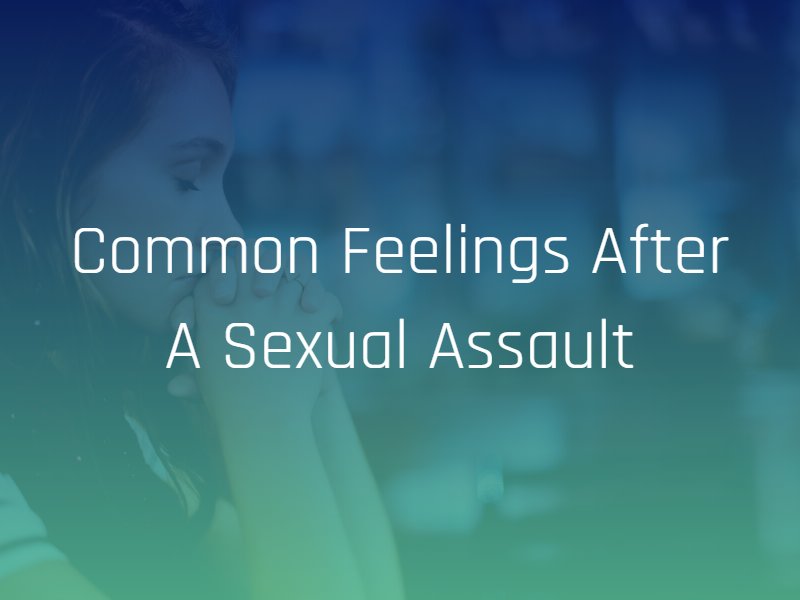Sexual assault is a traumatic experience to live through, both physically and emotionally. Survivors often feel a whirlwind of emotions, from extreme anger and sadness to feeling numb and experiencing dissociation — and all of these emotions are valid and common. However, some survivors may face stigma or victim blaming because their response is different from what others may expect.
By understanding how different survivors respond emotionally to sexual assault, we can build our capacity for empathy, helping more people seek justice for these crimes. Here are a few common emotions that survivors experience after an assault.
#1: Shock
It is common that survivors feel numb or out of their own bodies following a sexual assault. This is due to the shock following a traumatic event, and may occur for prolonged periods of time following an assault without psychological treatment. The survivor may feel disoriented while going to the hospital or speaking with police, and be unable to comprehend what happened to him or her.
#2: Anxiety
Extreme fear and anxiety are common responses to sexual assault. The survivor may be afraid of retaliation or of the perpetrator committing the assault again, leading to significant stress. He or she may feel generally unsafe and vulnerable, and experience nightmares, night terrors, and flashbacks of the assault.
These feelings can have an impact on the survivor’s ability to go out in social situations, engage in the activities he or she once loved, or even leave his or her home. Anxiety following assault may also trigger panic attacks and other physical anxiety symptoms, such as rapid heartbeat, shortness of breath, or insomnia.
#3: Guilt and Shame
Sexual assault is a violating crime, and it is very common for survivors to feel a sense of guilt, self-blame, or shame following this violence. A survivor may wonder what he or she could have done to prevent the assault, or whether or not he or she caused it to happen. The truth is that sexual assault is never the survivor’s fault, and these feelings of guilt and self-blame are not justified. However, many survivors will still feel this emotion following an assault, and this shame may prevent them from seeking treatment.
#4: Anger
Often, survivors will feel extremely angry following a sexual assault. Anger is a very common emotion following a sexual assault, and this anger is valid.
The survivor’s anger may be towards the perpetrator who caused the assault. The survivor may also feel anger towards other people in his or her community who cause him or her to feel shame or guilt about the assault, or refuse to listen to his or her story.
Other times, the survivor may feel angry at the police or the criminal justice system for not bringing the perpetrator to justice. In some cases, the survivor may feel angry at his or herself for not having control over the assault — and this anger may go hand in hand with feelings of guilt and shame.
#5: Substance Abuse
Although substance abuse is not a traditional emotion like anger or sadness, it is still a common emotional response to sexual assault. A survivor may start drinking more heavily or self-medicating with drugs following an assault to try to deal with the difficult emotions, or to numb the pain entirely. Substance abuse can cause significant health issues and even death, and if you or someone you know is engaging in this act, it is important to seek addiction treatment as soon as possible.
If you are a survivor of sexual assault, what happened is not your fault and the emotions you are feeling are valid. The most important step to take after experiencing an assault is to seek help — by going to the hospital to receive a forensic exam, by calling a hotline or visiting a counselor, by filing a police report, and even by speaking to an attorney. Contact an Uber sexual assault lawyer near you to discuss your legal options and pathways to justice.

